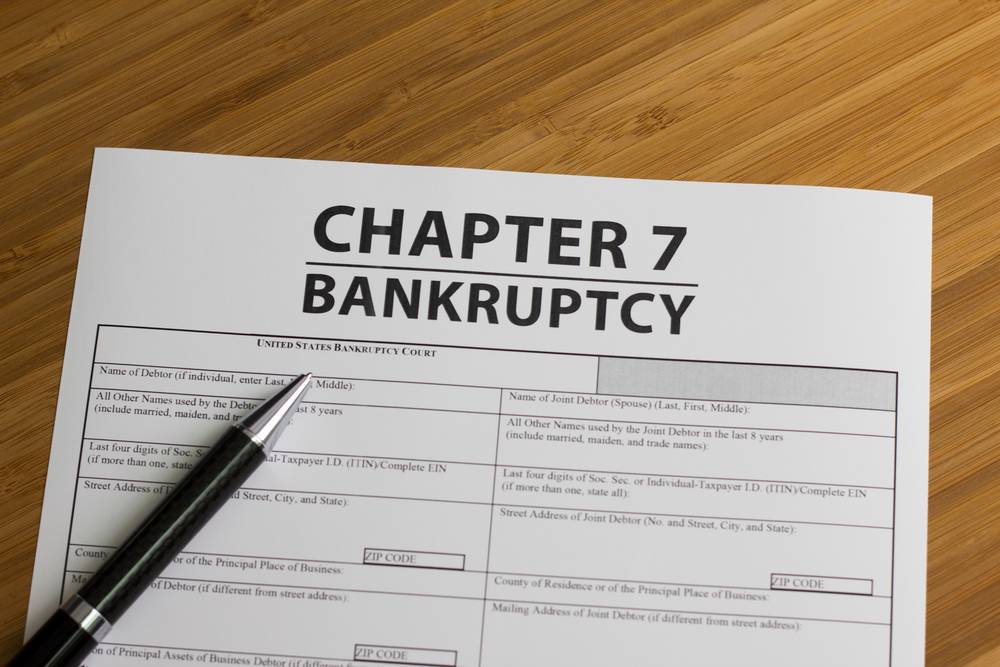Chapter 7 Bankruptcy
What is the role of a trustee in a Chapter 7 bankruptcy case?

The trustee’s role in a Chapter 7 bankruptcy case is to review the bankruptcy filings to make sure that there are no discrepancies. If there are discrepancies, the trustee is responsible for assessing the situation and include supporting documentation if applicable. The trustee’s role is to also look for property that is not exempt. The trustee will be looking for property that can be taken from you, liquidated, and sold. The money would then be given to your creditors to help pay down some of your debt. A trustee is a lawyer who contracts with the court or the Department of Justice.
How Long Does A Chapter 7 Bankruptcy Case Typically Take?
A Chapter 7 bankruptcy typically takes about three months. From the time of the filing until the time of discharge, it is about 3 months. Usually, after you file the bankruptcy, you will go to court around 30 days. After court, there is a 60-day period. The 60-day period allows for any objections to your discharge. After the end of the 60 days, the judge can enter the discharge order.
How Does A Chapter 7 Bankruptcy Impact Any Outstanding Lawsuits Or Attachments Against Me?
If you have any lawsuits or attachments against you when you file for a Chapter 7, an automatic stay goes into effect. The stay prevents your creditors from trying to collect while you are in bankruptcy. The automatic stay stops lawsuits, phone calls, letters, and garnishments. If a garnishment is in effect at the time of filing a Chapter 7 bankruptcy, the bankruptcy will stop that garnishment.
What Are Some Other Options If I Am Not Eligible To File A Chapter 7?
If you are not eligible to file for a Chapter 7, you might be eligible to file a Chapter 13. If you are a regular consumer debtor, it comes down to either a Chapter 7 or a Chapter 13 bankruptcy. If you can’t qualify for a 7, then most of the time you can file a Chapter 13 bankruptcy. A Chapter 13 allows you to make payments to your creditors over a three to five-year period. Generally, a Chapter 13 is for people who have disposable income, and can make some payments to their creditors. The payments range from 0% to 100%.
A Chapter 13 is also for people who want to keep their house out of a foreclosure. If you’re behind on payments on your house, you can file a Chapter 13 and keep your house. The same applies with cars. If you’re behind on car payments, and you want to keep the car, you can file a Chapter 13. Lenders cannot foreclose on your house or take your cars while you’re in bankruptcy. A Chapter 13 gives you the three to five-year period to get caught up on your house or cars, and even pay them off. Chapter 13 can help with taxes. If you owe a lot of taxes, a Chapter 13 gives you three to five years to pay them off without interest.
Why Do I Need An Attorney To Assist Me Through A Chapter 7 Bankruptcy?
It is always best to have somebody who is knowledgeable in the area of bankruptcy. It is advised to find someone who’s had lots of experience not only knowing the law, but who also knows the judges, and the trustees. For example, under the law, you might lose property pursuant to a statute, but if you get the right trustee, or if you treat the property a certain way, you may be able to avoid losing it. Bankruptcy law is complicated. It is a complicated area of law, and the judges are very detail-oriented, especially in federal court because bankruptcy law is federal.
It’s wise to have an attorney. Trustees usually prefer to have a debtor that has an attorney because everything goes through easier. It is less work for them, and the whole process moves a lot more smoothly. A lot of times the trustees and judges can’t give legal advice, and if you don’t do something pursuant to the law, your case can get dismissed very easily. People often try to be prose, which is to act on their own, but they usually tend to file something late or incorrectly, and wind up getting their case dismissed.
For more information on the role of a Trustee in a Chapter 7 bankruptcy, a free initial consultation is your next best step. Get the information and legal answers you are seeking by calling (405) 213-1919 today.
Contact Us Today Risk Free!
(405) 213-1919

